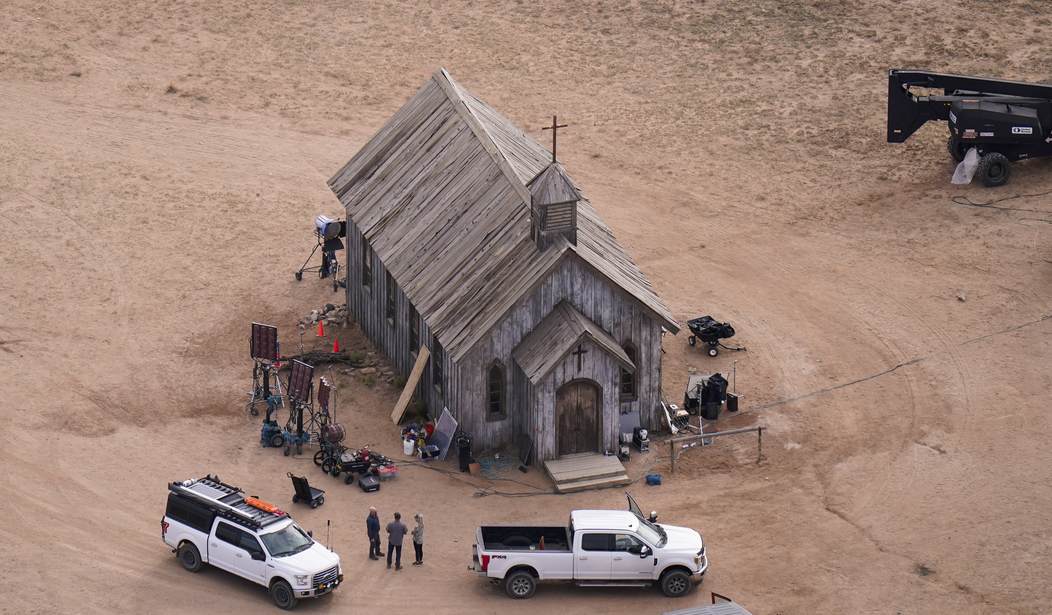The fallout from the shooting death of cinematographer Halyna Hutchins by Alec Baldwin continues this month with some action in the California state legislature. Lawmakers attempted to impose strict new rules that would regulate the use of guns and blank ammunition containing gunpowder on movie sets. Two competing bills addressing the subject, both authored by Democrats, were introduced. But both bills failed to draw significant levels of support from other lawmakers and they are now on hold. The bills’ authors do not expect them to move forward. Looking into the details of the bills, however, it doesn’t appear that they would do much that movie production companies aren’t already doing on their own. Also, this sort of legislation might drive more production companies out of the state. (CBS News)
New rules about how and when actors can use guns while filming failed to pass the California Legislature on Thursday just months after a gun actor Alec Baldwin was holding went off and killed a cinematographer on a movie set in New Mexico.
Democrats in the state Legislature had filed two bills in response to the tragedy, which killed cinematographer Halyna Hutchins and wounded director Joel Souza.
With competing proposals, Democratic state Sen. Anthony Portantino, chair of the Senate Appropriations Committee and the author of one of the proposals, said he “strongly urged” entertainment industry groups to “work collaboratively to bring forward a consensus approach.
This seems like yet another case of politicians seizing on a story that creates shocking headlines and scrambling to look like they are “doing something.” And as I mentioned above, the two bills were relatively toothless in terms going further than current industry standards regarding firearms on movie sets. The stricter of the two bills would have banned the use of “guns and blank ammunition containing gunpowder or other explosive charges” from movie sets. But it contained a provision providing for “some exceptions.” The legislation would also mandate a set safety coordinator to perform a risk assessment and enforce gun safety rules.
The other bill would allow guns with blank ammunition on movie sets, but only under the supervision of an armorer. It would also allow live ammunition “in certain circumstances.”
If those proposed rules sound familiar to you, that’s because they were all described extensively in reports that emerged after the Rust shooting. There was an armorer on Baldwin’s set and one of the assistant directors was a designated safety coordinator. There were lockable storage containers for all of the firearms and ammunition. The set schedules included provisions for safety meetings and inspections.
All of those provisions were in place. The problem is that Baldwin’s production company didn’t follow the rules or make use of all of the safety tools. Complaints were raised that the armorer was limited in the amount of time she was allowed to work. Safety meetings were canceled from the schedule. Weapons were not properly secured and people were reportedly engaging in target shooting in the desert when no filming was taking place. And the required inspections of all firearms and ammunition prior to being distributed to the crew obviously weren’t done rigorously or Halyna Hutchins would still be alive today. New rules wouldn’t make any difference if production companies ignore them.
Another factor that likely doomed the proposed bills was the predicted response from the film industry. Any new regulations that might potentially drive up production costs would likely send production companies elsewhere seeking more affordable shooting locations. There is a lot of competition between the states to host movie productions. It brings revenue to the area where the shooting is done and provides some free advertising for tourism. Many states have gone out of their way to pass bills offering tax breaks and incentives to production companies considering filming on their turf. California once dominated that market entirely, but that’s not the case anymore. No doubt California’s legislators were mindful of all the jobs that have already fled from the state and didn’t want to encourage any more losses.








Join the conversation as a VIP Member